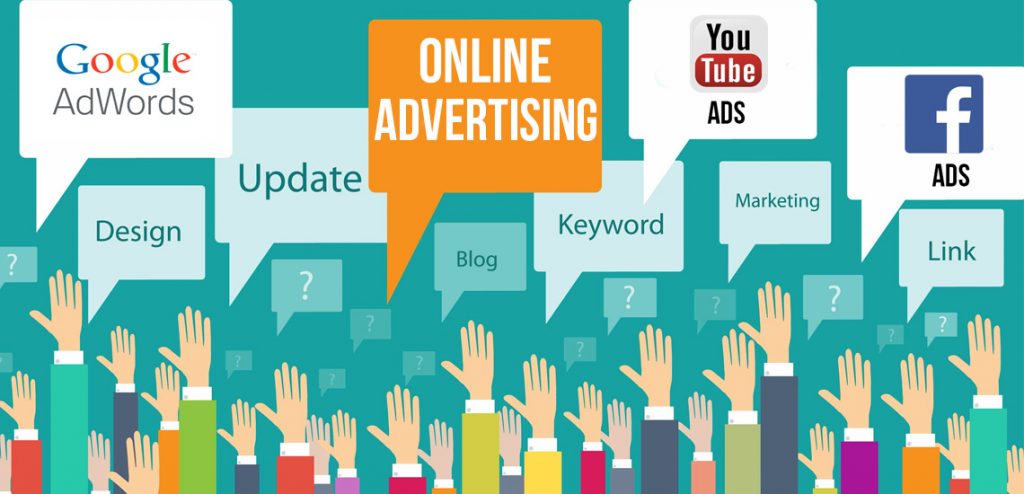
Technology has become so ingrained in our lives it is hard for most people to go a day without their phones or even a few hours. With our attention constantly online and on social media companies have started to focus more on online advertising. With this new focus comes both negative and positive consequences, but for this blog post I will be focusing on the negatives.
On a scale from 1-5 (1 being the lowest and 5 being the highest) I would rate the danger of our current online advertising model a 3. I personally think we are right in the middle, almost the turning point where it could go either way. I would say it is bad because we are getting to the point where we are willingly (or sometimes even unwillingly) giving up our personal privacy for convenience. For example, retargeting has become super popular for companies to use in order to target potential consumers based on their search history. Retargeting is targeted ads at users based off of their recent searches or sites visited. Everyone has experienced a retargeted ad, let’s say you were looking at watches on Amazon for a bit and decide to go to a different site like a news website. As soon as you start using that site you see ads for the watches you were just looking at on Amazon. It always feels a little creepy, like you are being spied on and they basically are.
In order to combat this dangerous online advertising model we have made, I have created a code of ethics I think will help everyone online.
1.Don’t target kids with advertising
I think this is an important first step in creating a good morals code of online advertising. Kids should never be the target of online advertising meaning companies shouldn’t put ads on kids’ sites where they are majority of the traffic. Since kids can’t really tell what an advertisement is and can’t tell if they are being targeted, I think it would be better if companies would avoid ads targeted at children. They also tend to be more compulsive and have to rely on their parents financially.
2.Be honest and truthful
It is the most basic way to build trust between a consumer and a company. Every company should be completely honest and truthful about their product or service. If a customer thinks they have been lied to then you lose the possibility of a returning customer and they will most likely spread their experience to friends and family so you’ll lose all those potential customers as well.
3.Advertisers should never give away customers information
This bullet point should seem pretty obvious but it is shocking how many companies’ giveaway and sell their customers personal information. In this modern digital age being able to track customers spending habits is a huge advantage and helps a lot with marketing. If customers find out you’ve been taking their information and giving/selling it to others you lose all that trust you’ve built with them.
4.Be transparent with customer’s information
You should always let your customers know what you plan to do with their information, again building trust. Make it optional for customers to share their information with you and don’t pressure them into it. Make it clear and easy to understand when you give the someone the option to share their information.
5.Avoid frustrating types of advertising
There are many types of advertisements that are annoying to deal with as a consumer. Pop-up ads will only push people away because of how frustrating they can be. Another type of ad is fake dialog boxes that are just made to deceive the user and trick them into clicking on their ads.
6.Follow laws and regulations
There are reasons for laws and regulations and every company should abide by them. If you don’t know what the federal or state laws are for online advertising looking them up is the first step to ethical online advertising practices.
7.Don’t use clickbait content
This tends to be a bigger problem on information type sites like blogs, news site, or review sites. Some companies try to cheat this system by buying fake reviews or having undisclosed sponsors. Another big trend we have seen spring up recently due to social media is “viral” advertising. It is exactly what it sounds like, trying to make something go viral just to add traffic to your site or company. A lot of the viral advertisement tend to be misleading or purposely start controversy just to get people talking about your company.
8.Take responsibility
As a company you should have the ethics not to sell a harmful product or service to anyone. You should think about the long-term effects of what you are selling and how you are advertising your product. Something as simple as a cheeseburger may seem small and impactful but can lead to obesity and heart disease.
These are just some ethics codes to think about has marketers and when creating online advertisements. Hope you find these interesting and helpful.
Sources:
- Sunnucks , Mike. “Why Annoying Online Ads Are More Dangerous than You Think.” Bizjournals.com, 14 May 2014, www.bizjournals.com/phoenix/blog/techflash/2014/05/why-annoying-online-ads-are-more-dangerous-than.html.
- Gigante, Michael Del. “Eight Principles Of Advertising Ethics.” MDG Advertising, 11 Oct. 2018, www.mdgadvertising.com/marketing-insights/eight-principles-of-advertising-ethics/.
- Spizziri, Martha. “Ethical Issues in Online Advertising.” The Balance Small Business, The Balance Small Business, 12 Nov. 2018, www.thebalancesmb.com/ethical-issues-in-online-advertising-39115.
- facebook_maulikdoshi21. “Ethics in Internet Selling and Advertising – The Better Way Forward.” Langoor, 21 Oct. 2013, www.langoor.com/ethics-in-internet-selling-and-advertising/.
- Ingram, David. “List of Ethical & Legal Issues When Advertising.” Small Business – Chron.com, Chron.com, 8 Mar. 2019, smallbusiness.chron.com/list-ethical-legal-issues-advertising-11466.html.
- “Digital Marketing Essentials” Larson and Draper, May 2019
